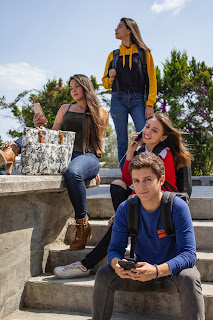 |
| "It's really about showing how sports can influence politics, and vice versa." |
As they get farther along in school, though, the lessons become more challenging and are drawn from different things. But I suspect that a lot of parents at least try it -- and it may be the earliest experience that many kids have in relating what they see or hear on the TV or the playing field into their daily life.
It's challenging to use sports as a metaphor or a teaching tool, given that kids come from so many different backgrounds and it's hard to know what's going to resonate. One wouldn't want to be a math teacher using batting average or OPS to teach division to a class that has no idea what those statistics mean.
Ben Whitehead is a high school teacher in south Alabama, teaching English, US and world history, and American government and economics. We connected on Twitter and I asked him about how he brings sports into his lessons.
What's your approach? What's your angle?
"On the brief side, it's really about showing how sports can influence politics and vice versa." Unfortunately, there's not too much of an angle. I just try to show how sports have shaped history and how history has shaped sports. Most of it doesn't really come up until the 20th century though.
"Granted, you get great events for stories like the Christmas soccer truce in World War I, Jesse Owens at the 1936 Berlin Olympics, and Tommie Smith and John Carlos at the 1968 Mexico City Olympics. Basically, I bring it in wherever I can. I really enjoy blowing my kids' minds by telling them about how Teddy Roosevelt is pretty much to thank for the forward pass in football."
Recently, the biggest and most contentious issue having to do with sports and society is Colin Kaepernick's kneeling to protest police brutality. Would you think of
using that as an example or is it too contentious?
"I would love to bring up Kaep, especially around the idea of free speech, but where I live, he's kind of off-limits. Most people have a preformed opinion, so discussing the validity of the protests is a moot point. I would say that from a historical perspective, Kaep's kneel is definitely in the same realm as Smith and Carlos."
And that seems to be a good place to leave it. I remember hearing from my parents about the violent reaction to Smith and Carlos giving the black power salute on the medal stand fifty-two summers ago. One would hope that a half-century from now, we're in a better place to talk about Kaepernick taking a stand--a peaceful gesture that has both made him a well-recognized activist and cost him his athletic career.
Are you an educator, and have you used sports as a teaching tool? If you have, what challenges have you encountered? What insights have you gained? Please add to the comments below...

Comments
Post a Comment